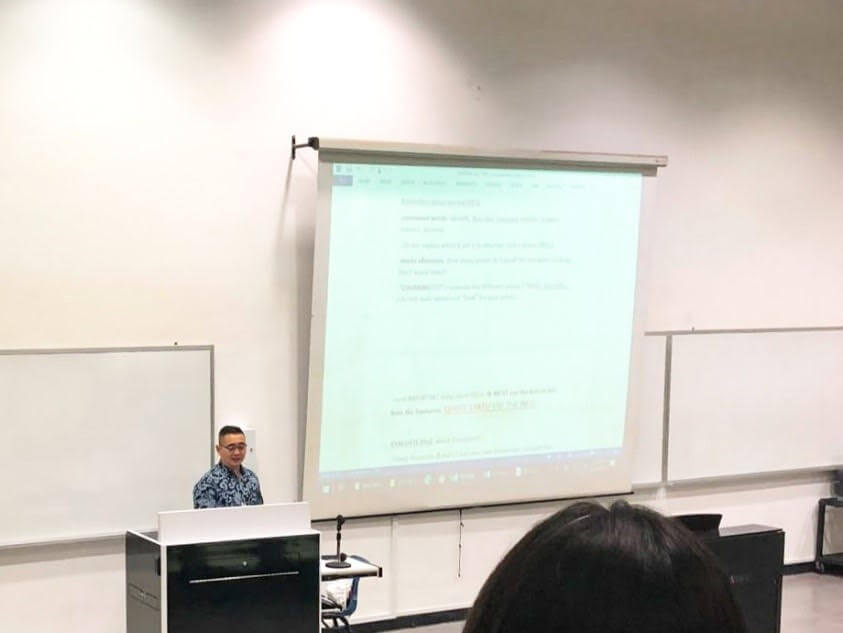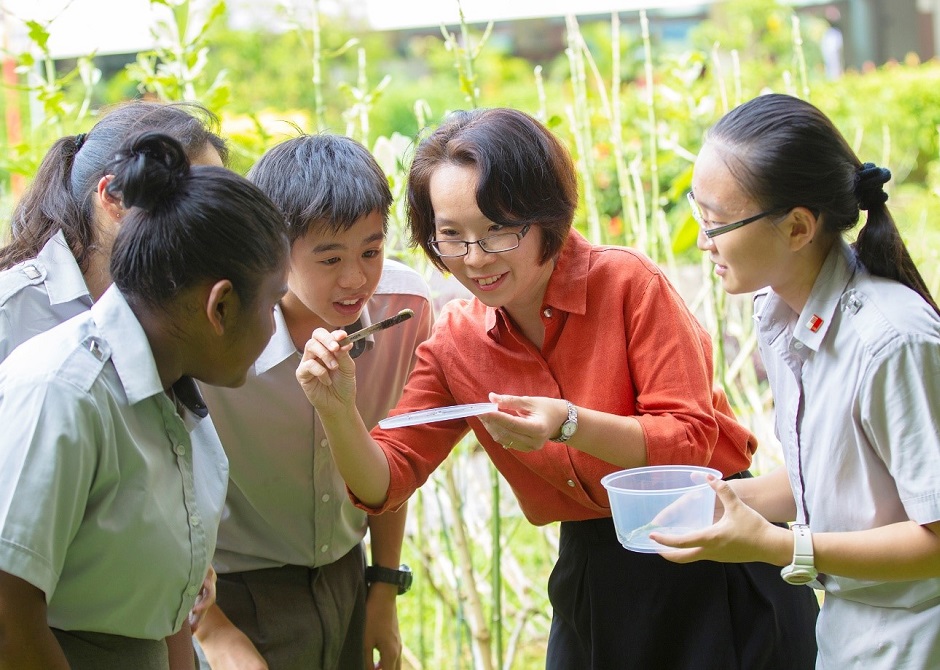Julius Chua’s passion for biodiversity made him curious about how Singapore’s native wildlife could coexist with humans in a highly urbanised environment. “I was interested to investigate the differences in Singaporeans’ responses towards various types of wildlife such as pangolins, long-tail macaques and otters. I really enjoyed researching into this area as part of H3 Geography,” says Julius, who recently graduated from Hwa Chong Institution (HCI).
Taking H3 Geography allows students to explore, in depth, a particular topic that they are interested in or feel strongly for. Like other subjects at the H3 level, it stretches students’ cognitive abilities, such as critical thinking and reasoning, and extends opportunities for them to display their talent for the subject. Furthermore, the independent research that students undertake exposes them to ideas and issues beyond the H2 syllabus, and provides them with opportunities to collect data about the real world through fieldwork.
Freedom to explore issues that matter
H3 Geography students receive strong support and advice from their Coursework Supervisors like Mr Kamal Rizal, a Geography teacher from Raffles Institution (RI). “The most important advice that I give my students is to choose a topic that they feel excited about, as this will help to sustain them throughout the whole research process. Students tend to be overly ambitious at the beginning, so I always advise them to scale down the scope of their research to something more manageable given time and other resource constraints. Some of my students enjoyed their H3 Geography experience so much that they eventually went on to pursue Geography or a related course at university.”

Mr Kamal Rizal, a Geography Teacher and Coursework Supervisor for H3 Geography, advises his students to plan and scope their independent research essay.
Like many of his peers, former HCI student Nicholas Ong cites the ability to delve into a topic of interest as one of the main draws of taking H3 Geography. As a frequent visitor to wet markets locally and overseas, Nicholas saw the stark contrasts between the prospects of wet markets in Singapore and those overseas.
“I met an elderly man who had been running a spice shop at a wet market in Little India for 50 years. When I asked whether he was planning to retire, he replied that he did not have anyone to hand the shop over to, and that the business was simply ‘waiting for death’. However in Japan, the markets are bustling and this liveliness draws new customers and even tourists to visit! The future of wet markets in Singapore was something that I felt more people should be aware of,” says Nicholas.
To bring light to the challenging future that wet markets in Singapore are facing, Nicholas interviewed stakeholders and Singaporeans on their perceptions of wet markets. He also studied the Nijo Fish Market in Japan and made recommendations on how wet markets in Singapore could emulate and thrive. “I find learning to be much more enjoyable when it is on something that I am concerned about. My findings can also contribute to the current academic literature on wet markets.”
Opportunities to develop valuable life skills
Not only are H3 Geography students able to hone their analytical and writing skills, they also develop a range of soft skills such as self-management, resourcefulness, resilience and empathy through conducting their own research.
Dunman High School (DHS) alumna Ang Wei Jing recalls having to approach strangers to answer her questionnaire as part of her data collection. “I am generally quite shy, so it was quite disheartening to be turned down at the beginning. Over time, I learnt how to handle rejection and to observe whether people were busy or not before approaching them to increase my chances of success.” Her counterpart from RI, Huang Huanyan, agrees that flexibility and adaptability are key. “I realised that people were more willing to be interviewed when they were seated at a food court, and when I was wearing my school uniform. So I changed my approach and was able to find enough interviewees.”
A taste of the working world
Additionally, H3 Geography students get the chance to find out more about potential career pathways over the course of the research process. DHS graduate Lee Xian Lu spoke with transport planners from the Land Transport Authority as part of his research into the effectiveness of efforts to promote cycling in Punggol. “We often gripe about our transport system, but are unaware of the constraints that planners face, such as space and budget. In Singapore, land scarcity often limits the development of cycling paths, which in turn affects their connectivity and accessibility.” Learning more about efforts to make Singapore a sustainable city has inspired Xian Lu to pursue a career in the transport and urban planning sector.
Former Victoria Junior College student Ong Yong En discovered a passion for interacting with people and doing grassroots work when she had to interview residents in Tampines during her research. “Talking to the residents was enjoyable as I learnt a lot more about their perspectives and stories.” Yong En’s research into community spaces led her to take up an internship with the People’s Association at Our Tampines Hub after her graduation, where she worked alongside Constituency Managers on the Singapore Bicentennial Roadshows.

During her internship with the People’s Association, Ong Yong En (second from right) worked on the Singapore Bicentennial Roadshow at Our Tampines Hub.
Geography is the study of Earth’s landscapes, environments, places and people. Through it, students are better able to understand the relationships between mankind and nature, as well as the processes that shape them.
H3 Geography builds on H2 Geography content by examining the concept of sustainable development in greater detail. Students undertake an independent research project related to sustainable development based on a topic of their choice. Students will also receive guidance from their school-appointed Coursework Supervisors through face-to-face conferences.
Is your child passionate about Geography? Does taking on independent research appeal to him or her? Find out more about the H3 Geography syllabus and contact your child’s school for more details about the eligibility criteria.






